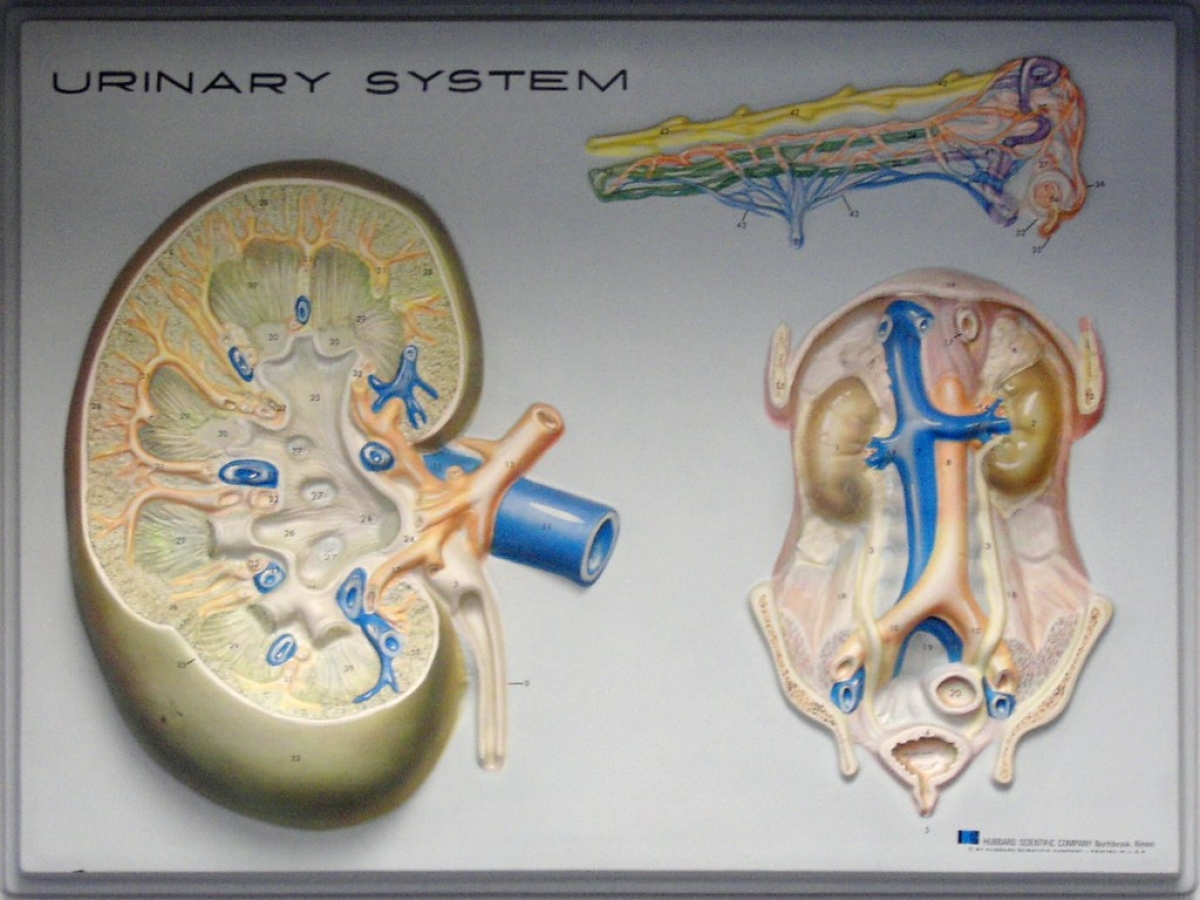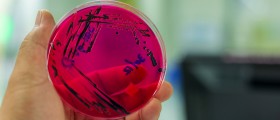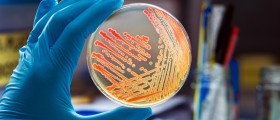Urinary system
Urinary or excretory system is one of the complex systems in the human body, which has several vital roles. Two kidneys, two ureters, a urinary bladder, two sphincter muscles and the urethra are the organs that comprise the urinary tract in the humans. During the metabolic processes, a waste material is made and it has to be removed from the body. Each of the organs of the urinary tract has its own function in removing the water-soluble waste from the body.
There are two kidneys in the human body and each is located just below the rib cage on both sides of the abdomen. They have the shape of beans. Two narrow tubes called ureters connect the kidneys with the bladder, which is a triangular hollow organ. The urethra is a tube that moves the urine from the bladder out from the body.

The main function of this system is the removal of waste products from the body through the urine. Urea is the waste product made during the protein metabolism. The kidneys first remove the urea from the bloodstream and by doing it, the kidneys also control the blood volume, thus controlling the blood pressure as well. Another role of the kidneys is the production of an enzyme called rennin, which controls the blood pressure. Furthermore, the hormone erythropoietin is also secreted by the kidneys. This hormone also has a role in the production of red blood cells. The synthesis of vitamin D and the amounts of calcium, sodium, potassium and chloride ions are regulated by the kidneys. The ureters are two narrow tubes responsible for carrying the urine from the kidneys to the bladder and preventing it from returning to the kidneys during urination when the urine passes to the urethra. Cystitis or kidney infections may occur when the function of the ureters is impaired. The bladder has the role to store the urine until it is ejected from the body. This organ has the ability to expand in order to receive large amounts of the urine. When it contracts, it passes the urine to the urethra. The urine is kept in the bladder by means of two sphincter muscles, which close tightly the opening of the bladder.
To conclude, the urinary system functions include removing the waste material from the body in the form of urine, regulation of the volume and pH of blood, blood pressure and stimulating the synthesis of red blood cells and vitamin D.


















Your thoughts on this
Loading...